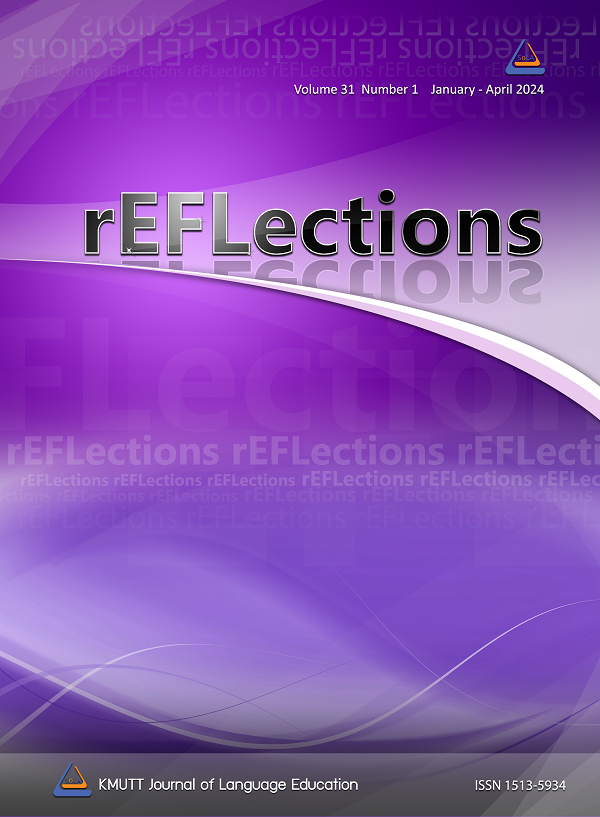Factor Analysis of Students’ Perceived Needs Prior to Studies Abroad
Main Article Content
Abstract
This paper presents a midterm review of a 4-year factor analysis project aimed at validating an outcome-based assessment of study-abroad programs attended by Japanese students. This paper outlines how the results from the initial two years captured changes in perceptions and reasons for studying abroad. It found that students have become increasingly focused on how the experience will impact their future careers. This is a shift from those who studied abroad before the COVID-19 pandemic. Those students motivations for studying abroad were primarily internal and experiential, such as wanting to improve their language skills and experience life in another country, or external and passive reasons arising from the circumstances or opinions of family or friends. The research also indicates how awareness of this shift could assist administrators in designing and conducting successful international experiences.
Article Details

This work is licensed under a Creative Commons Attribution-NonCommercial-NoDerivatives 4.0 International License.
References
Anderson, P. H., & Lawton, L. (2015). The MSA: An instrument for measuring motivation to study abroad. Frontiers: The Interdisciplinary Journal of Study Abroad, 26(1), 53–67. DOI: https://doi.org/10.36366/frontiers.v26i1.357
Aristovnik, A., Keržič, D., Ravšelj, D., Tomaževič, N., & Umek, L. (2020). Impacts of the COVID-19 pandemic on life of higher education students: A global perspective. Sustainability, 12(20), 8438. https://doi.org/10.3390/su12208438 DOI: https://doi.org/10.3390/su12208438
Bikos, L. H., Manning, S. B., & Frieders, Z. J. (2019). Ready or not here I come: A qualitative investigation of students’ readiness perceptions for study abroad/away. International Perspectives in Psychology: Research, Practice, Consultation, 8(2), 78–91. https://doi.org/10.1037/ipp0000105 DOI: https://doi.org/10.1037/ipp0000105
Bista, K., Allen, R. M., & Chan, R. Y. (2022). Epilogue: What next? A new era? In K. Bista, R. M. Allen & R. Y. Chan (Eds.), Impacts of COVID-19 on international students and the future of student mobility (pp. 203–204). Routledge. DOI: https://doi.org/10.4324/9781003138402-15
Costello, A. B., & Osborne, J. W. (2005) Best practices in exploratory factor analysis: Four recommendations for getting the most from your analysis. Practical Assessment, Research & Evaluation, 10, 1-9.
Cronbach, L. J. (1951). Coefficient alpha and the internal structure of tests. Psychometrika, 16, 297–334. https://doi.org/10.1007/BF02310555 DOI: https://doi.org/10.1007/BF02310555
Douglas, S. R., Sano, F., & Rosvold, M. (2018). Short-term study abroad: The storied experiences of teacher candidates from Japan. Learning Landscapes, 11(2), 127–140. https://doi.org/10.36510/learnland.v11i2.951 DOI: https://doi.org/10.36510/learnland.v11i2.951
Fabrigar, L. R., Wegener, D. T., MacCallum, R. C., & Strahan, E. J. (1999). Evaluating the use of exploratory factor analysis in psychological research. Psychological Methods, 4(3), 272–299. DOI: https://doi.org/10.1037//1082-989X.4.3.272
Fabrigar, L. R., & Wegener, D. T. (2012). Structural equation modeling. In J. P. Steven (Ed.), Applied multivariate statistics for the social sciences (5th ed., pp. 549–594). Routledge. DOI: https://doi.org/10.4324/9780203843130-20
JAOS. (2019). JAOS 2019 survey report. JAOS. https://www.jaos.or.jp/wp-content/uploads/2020/03/JAOSSurvey-2019_-JapaneseStudent191219.pdf
JASSO. (2020). Survey results of the study abroad situation of Japanese students in 2020. JASSO. https://www.studyinjapan.go.jp/ja/statistics/nippon/data/2020.html
Kaiser, H. F. (1960). The application of electronic computers to factor analysis. Educational and Psychological Measurement, 20, 141–151. https://doi.org/10.1177/001316446002000116 DOI: https://doi.org/10.1177/001316446002000116
Lumley, D. (2020). Personal growth and change on study abroad programs: Managing expectations and maximising outcomes. [Doctoral thesis, University of Liverpool]. https://doi.org/10.17638/03116027
MEXT. (2013). About Tobitate! MEXT. https://tobitate.mext.go.jp/about/english.html
MEXT. (2020). Questionnaire results (2nd). MEXT. https://tgu.mext.go.jp/en/symp02/pdf/2-2.pdf
Murakami, T. (2012). Employment and society after studying abroad. Study Abroad Exchange, 12. https://www.jasso.go.jp/ryugaku/related/kouryu/2011/__icsFiles/afieldfile/2021/02/18/toshiemurakami.pdf
Nghia, T. L. H. (2019). Motivations for studying abroad and immigration intentions: The case of Vietnamese students. Journal of International Students, 9(3), 758–776. https://doi.org/10.32674/JIS.V0I0.731 DOI: https://doi.org/10.32674/jis.v0i0.731
Nowlan, A., & Wang, R. (2018). Study abroad self-selection amongst first-year Japanese university students. Journal of International and Comparative Education, 7(2), 65–81. DOI: https://doi.org/10.14425/jice.2018.7.2.65
OECD. (2016). Education at a glance 2016: OECD indicators. OECD Publishing. https://doi.org/10.1787/eag-2016-en DOI: https://doi.org/10.1787/eag-2016-en
OECD. (2021). Education at a glance 2021: OECD indicators. OECD Publishing. https://doi.org/10.1787/b35a14e5-en DOI: https://doi.org/10.1787/b35a14e5-en
Ota, H. (2018). Internationalization of higher education: Global trends and Japan’s challenges. Educational Studies in Japan, 12, 91–105. DOI: https://doi.org/10.7571/esjkyoiku.12.91
Salyers, V., Carston, C. S., Dean, Y., & London, C. (2015). Exploring the motivations, expectations, and experiences of students who study in global settings. Journal of International Students, 5(4), 368–382. DOI: https://doi.org/10.32674/jis.v5i4.401
Tanikawa, M. (2011, February 20). Fewer Japanese students studying abroad. New York Times. https://www.nytimes.com/2011/02/21/world/asia/21iht-educLede21.html
Walsh, R., & Walsh, M. (2018). In their own words: American students’ perspectives on study abroad experiences. Humanistic Psychologist, 46(2), 129–146. https://doi.org/10.1037/hum0000083 DOI: https://doi.org/10.1037/hum0000083
Yonezawa, A. (2014). Japan’s challenge of fostering “global human resources”: Policy debates and practices. Japan Labor Review, 11(2), 37–52.
Zhai, K., Gao, X., & Wang, G. (2019). Factors for Chinese students choosing Australian higher education and motivation for returning: A systematic review. SAGE Open. https://doi.org/10.1177/2158244019850263 DOI: https://doi.org/10.1177/2158244019850263


